50+ SAMPLE Advisor Agreement
-
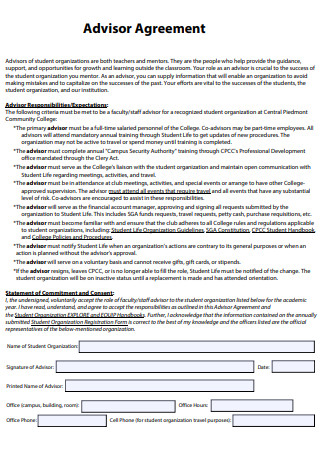
Advisor Agreement
download now -
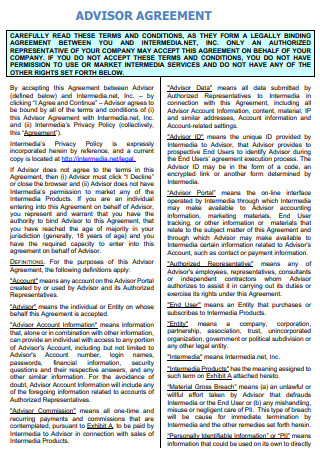
Sample Advisor Agreement
download now -

Advisor Agreement Form
download now -
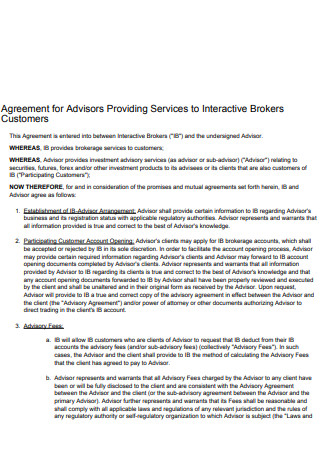
Advisor Providing Services Agreement
download now -
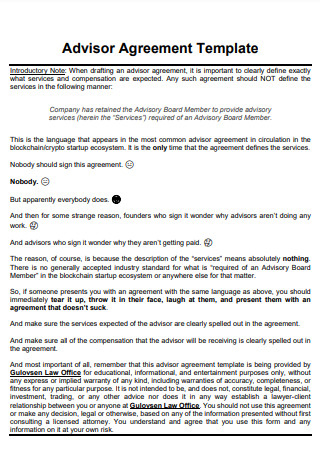
Advisor Agreement Template
download now -
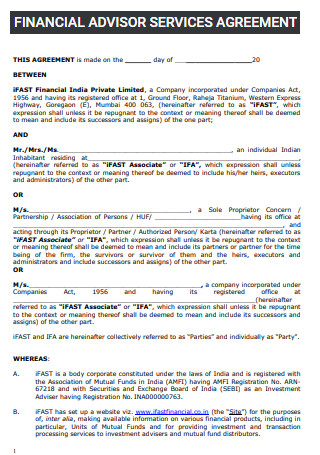
Financial Advisor Service Agreement
download now -
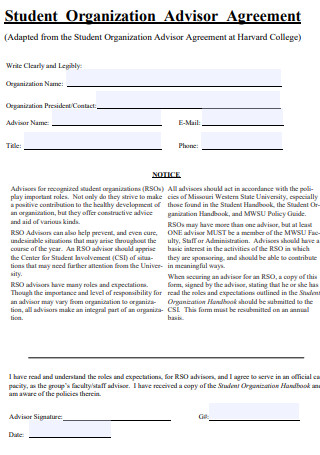
Student Organization Advisor Agreement
download now -
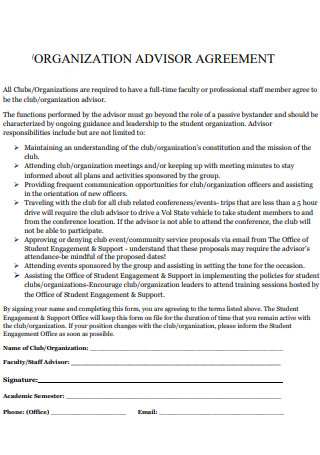
Organization Advisor Agreement
download now -

Student Advisor Scheduling Agreement
download now -
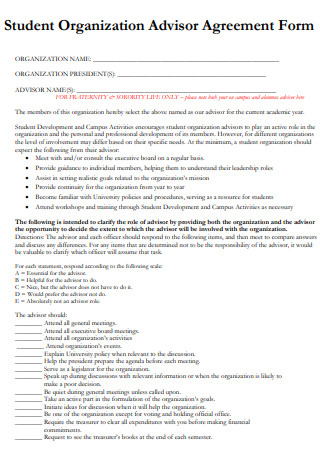
Student Organization Advisor Agreement Form
download now -
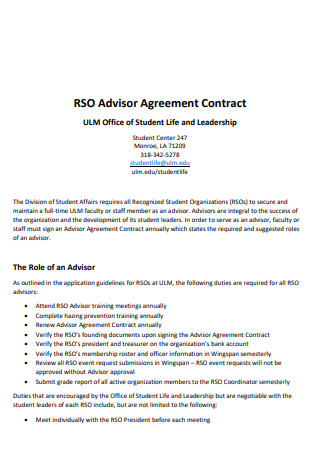
Advisor Agreement Contract
download now -
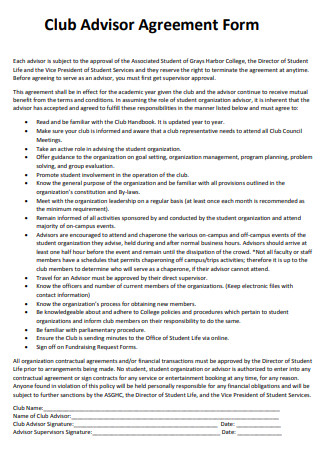
Club Advisor Agreement Form
download now -
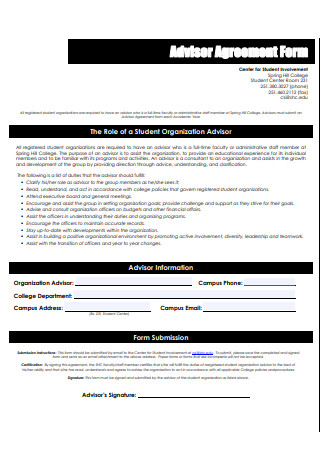
Sample Advisor Agreement Form
download now -
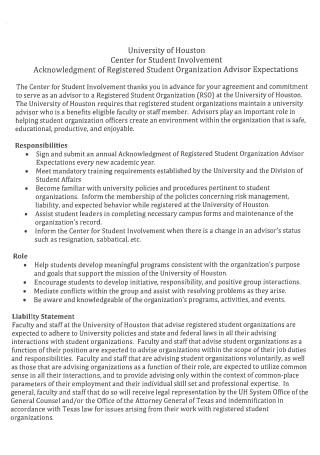
University Advisor Agreement
download now -
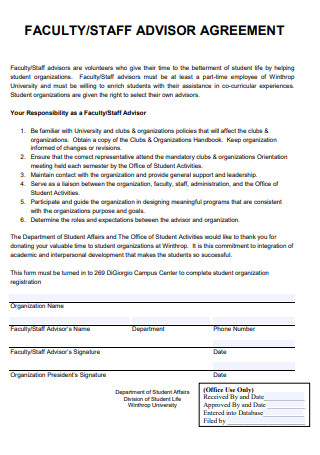
Faculty Staff Advisor Agreement
download now -
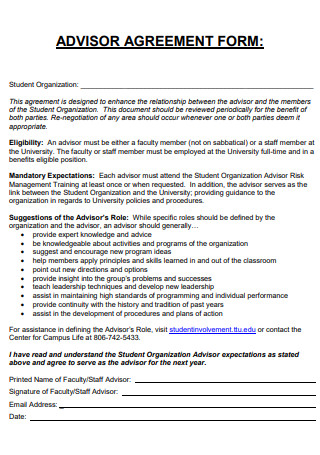
Simple Advisor Agreement
download now -

Co Advisor Agreement
download now -

Student Advisor Agreement
download now -
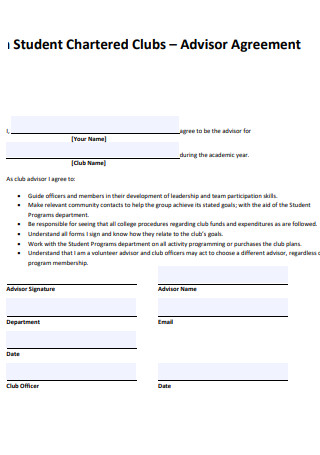
Student Chartered Clubs Advisor Agreement
download now -
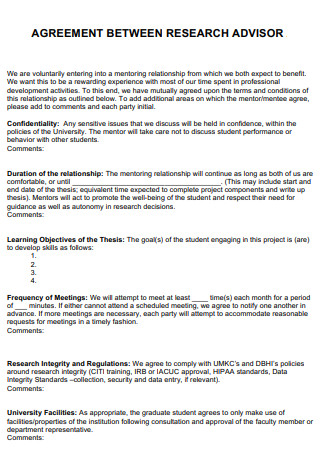
Research Advisor Agreement
download now -
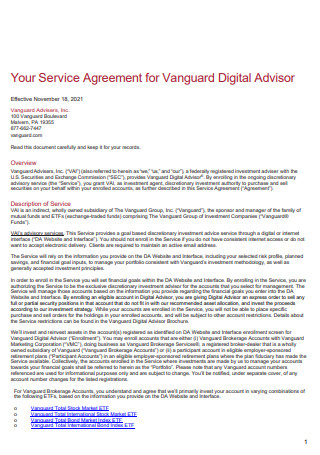
Digital Advisor Agreement
download now -

Advisor Support Agreement
download now -
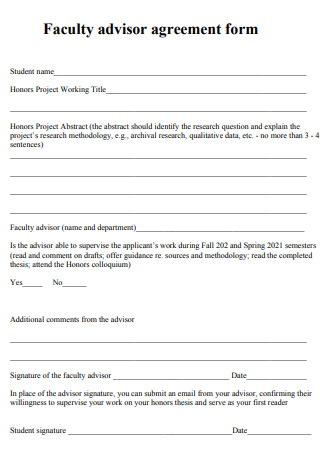
Faculty Advisor Agreement Form
download now -
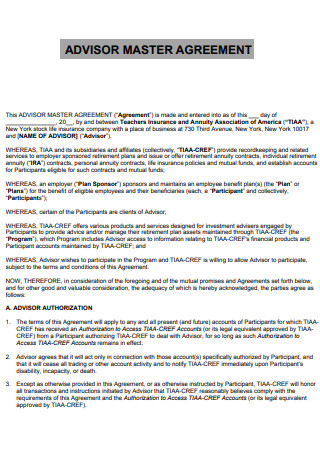
Advisor Master Agreement
download now -
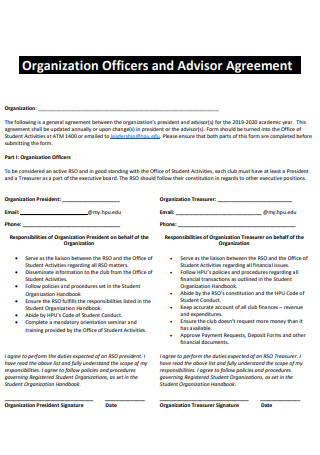
Organization Officers and Advisor Agreement
download now -
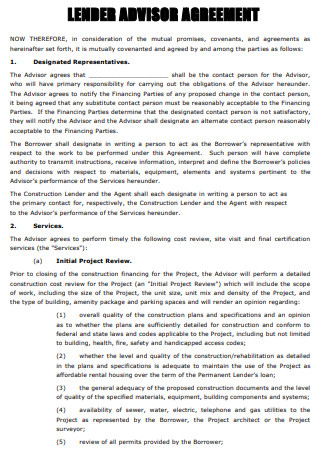
Lender Advisor Agreement
download now -
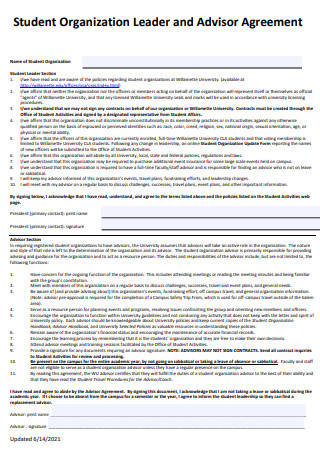
Leader Advisor Agreement
download now -
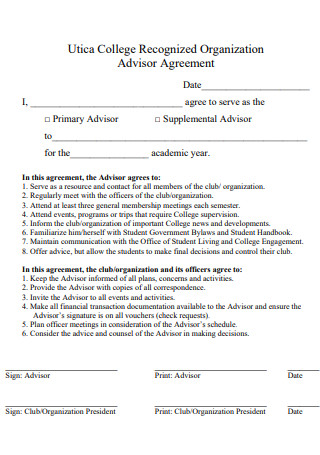
College Recognized Organization Advisor Agreement
download now -
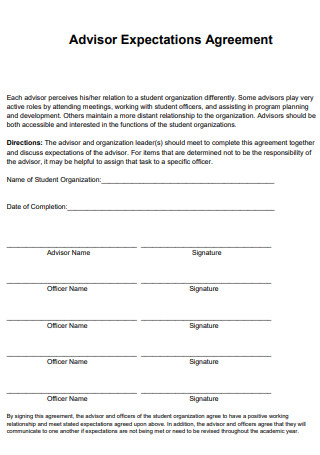
Advisor Expectations Agreement
download now -
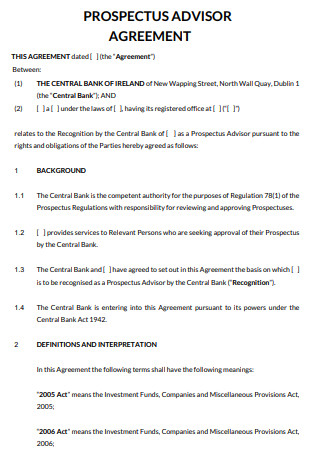
Prospectus Advisor Agreement
download now -
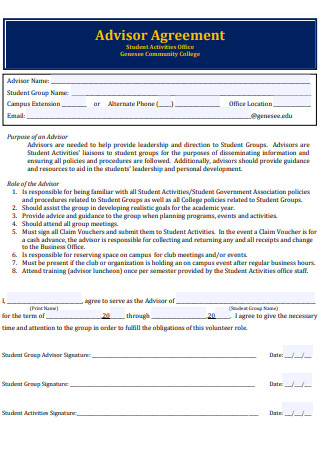
Standard Advisor Agreement
download now -
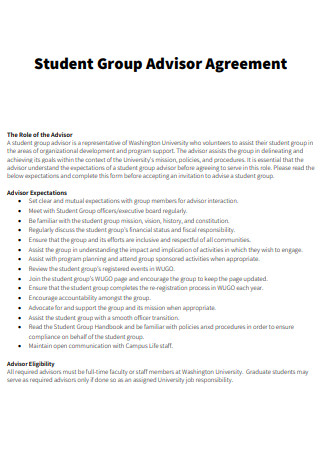
Student Group Advisor Agreement
download now -
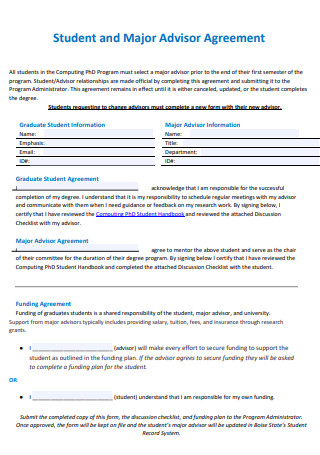
Student and Major Advisor Agreement
download now -
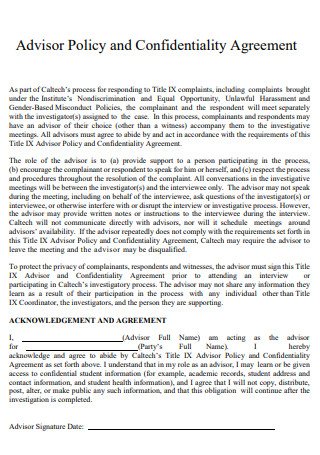
Advisor Policy and Confidentiality Agreement
download now -
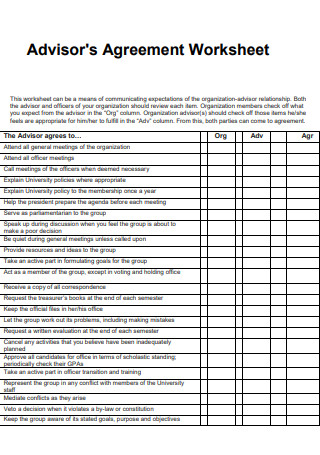
Advisor Agreement Worksheet
download now -

Thesis Research Advisor Agreement Form
download now -
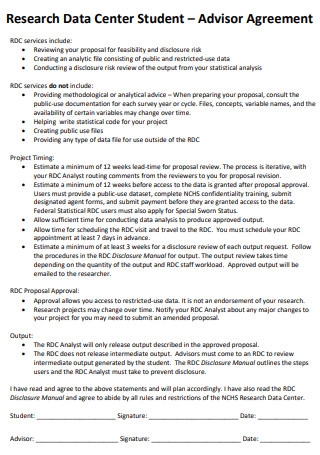
Research Data Center Student Advisor Agreement
download now -
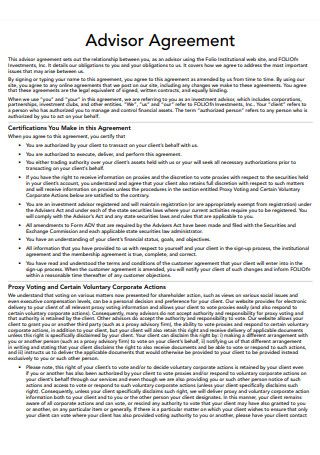
Formal Advisor Agreement
download now -
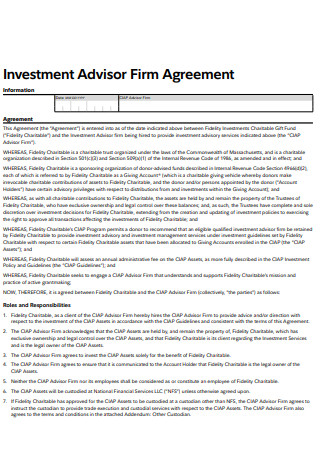
Investment Advisor Firm Agreement
download now -
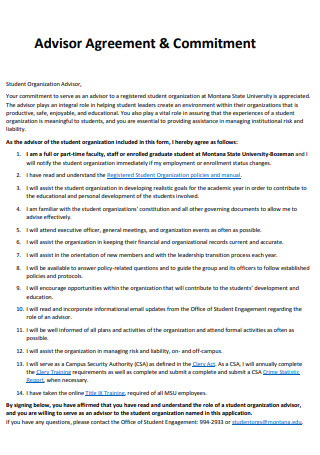
Advisor Agreement Commitment
download now -
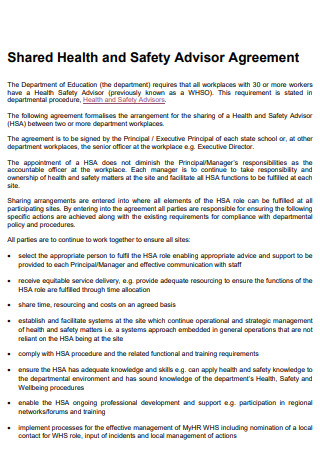
Health and Safety Advisor Agreement
download now -
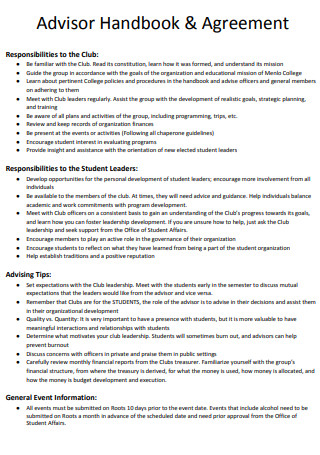
Advisor Handbook & Agreement
download now -
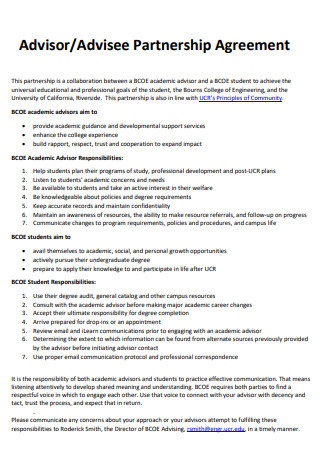
Advisor Partnership Agreement
download now -

Senior Comprehensive Advisor Agreement
download now -
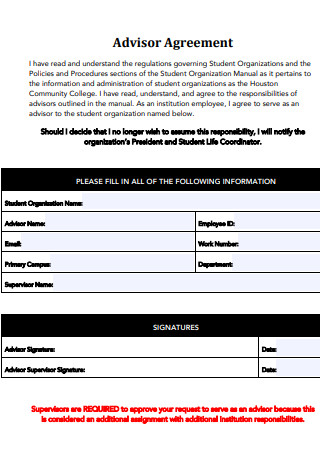
Blank Advisor Agreement
download now -
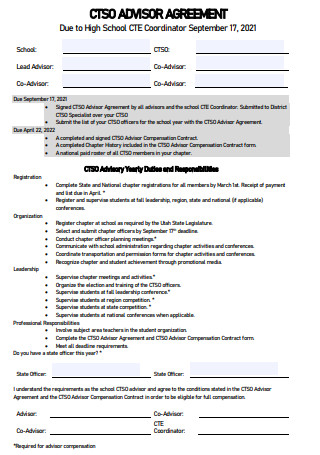
School Advisor Agreement
download now -

Club Sports Advisor Agreement
download now -
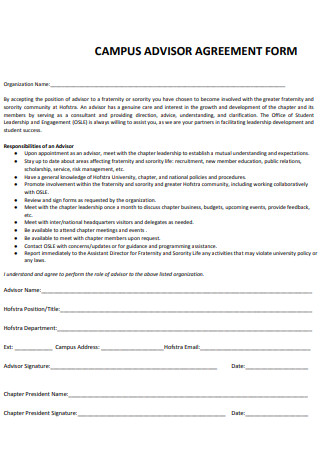
Campus Advisor Agreement Form
download now -

Medical Advisor Agreement
download now -
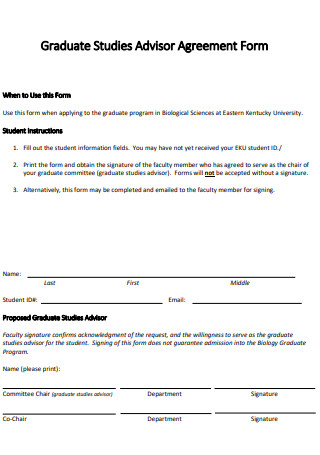
Graduate Studies Advisor Agreement Form
download now -
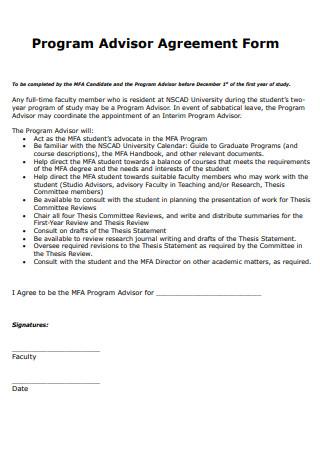
Program Advisor Agreement Form
download now
FREE Advisor Agreement s to Download
50+ SAMPLE Advisor Agreement
What Is an Advisor Agreement?
Important Sections of an Advisor Agreement
Advantages of Hiring the Services of a Business/Company Advisor
How to Acquire the Services of an Advisor
FAQs
What is the difference between advisory and consultancy?
Why do company leaders often need advisors?
Can advisors be also considered as business partners?
What Is an Advisor Agreement?
First of all, who is an advisor, and what is his/her respective role? Well, an advisor refers to an individual that provides assistance to many different companies (usually start-ups) in overcoming many, and often, difficult challenges that they may encounter during the early days. Advisors also offer their expertise in situations that may prove to be too difficult to handle by the company, and sometimes their role can also expand into the acquisition of new faces for a start-up company.
An advisor agreement is a business document that lays down the specific terms and conditions concerning the working relationship between an advisor and the client company, whether they are still start-ups or already established. This agreement should also lay out the different expectations of all the parties involved such as the different types of work to be performed and the compensation terms for the advisor.
Important Sections of an Advisor Agreement
Whenever you draft an advisor agreement, here are the important sections that you need to keep in mind:
Advantages of Hiring the Services of a Business/Company Advisor
When business owners get faced with a difficult situation that is sometimes out of their control, hiring the services of a business/company advisor would be a good first step. That being said, here are a few advantages that come with hiring an advisor:
How to Acquire the Services of an Advisor
Advisors are experts in their own domain and help business/company owners in their business. Their presence and services in a company will greatly aid them in achieving their goals while avoiding the most common shortcomings in the process. With that being said, here are the steps that should be followed when you, as a business owner, plan to acquire the services of a company advisor. More steps may be present depending on who you’re looking for and the type of company that needs one.
-
1. Analyze Your Assumptions and Plans
This is the first step to be followed when planning to hire an advisor. In this step, consider the following questions when performing an analysis of your assumptions and plans: How will hiring an advisor be impactful in terms of his/her contributions to the success of the company? Does the company need a firm and formalized succession plan? Does the company need to minimize overhead costs by hiring an advisor? Whenever the company needs a succession plan to be put in place, hiring an advisor is good practice since it enables the company to establish a continuity plan and protects the clients while a successor is still being searched.
-
2. Profile Creation
After performing a thorough analysis of the needs of the company and arriving at the conclusion that an advisor is needed, this step will then follow. In this step, determine the type of connection the organization wants to have with the advisor they intend to hire. Make a list of the precise goals for working with this adviser and stick to them. This step will also determine if the company will give this person a paycheck or if they would earn money from clients. Some of the main characteristics to consider include experience, knowledge, abilities, service standards, and personal values.
-
3. Perform a Candidate Search.
After creating an ideal profile for the advisor that the company needs, this step will then follow, which signals the start of searching the candidates based on the profile that was created. There are several ways to find advisors. In this step, the company needs to determine the qualifications that the ideal adviser should have and where they might be able to locate a suitable match. It might be at an industry or networking event, a business meeting, or a conference. It might also be through recommendations, business relationships, job boards, or even on social media.
-
4. Interview Process
After performing a candidate search and narrowing down the options to a select few, this step will then follow, which signals the start of the interview process for the advisor candidates that passed the initial search. In this step, meet each candidate and tell them about the company and why they need the services of an advisor. Questions that can be asked during the process include what their goals are, what their expectations are, and what their motivation is.
FAQs
What is the difference between advisory and consultancy?
Advisory is the technique of supporting a company in gradually improving its standard operating procedures. Consultancy, on the other hand, is the practice of offering advice and experience on a topic to a business or collection of individuals in exchange for remuneration. Hiring consultants may prove to be advantageous to organizations, particularly if they can provide skills or knowledge that the company does not have in-house. The amount of time the expert works with the customer is a clear differentiation between advising and consulting. Advisers often work with their customers for lengthy periods of time, whereas consultants typically engage with their customers on a short-term basis.
Why do company leaders often need advisors?
Company executives require advisors since conditions at the top may be alienating. Oftentimes, company leaders lack senior peers with whom they may exchange ideas, create strategies, and make critical business choices. Despite this, they have much more business concerns to consider than ever before at their level. Company leaders will also require counselors because they can only do so much in terms of answering all of the issues and difficulties that arise.
Can advisors be also considered as business partners?
Yes, they can be. Since a benefit of hiring an advisor for your company is that you may also get a good business partner in one. Once trust is built and established between the company and the advisor, they will now become part of the company’s business. Since they can also be considered as business partners now, should any issues arise, company owners can always count on their help.
A good advisor will help a company in its decision-making process while avoiding the dangerous downsides. Hiring their services can be a long and tedious process, especially for companies in a low unemployment environment. Competent advisors can bring the company the insight they need whenever they need it. Subsequently, an effective advisor agreement will make sure that the interests of all the parties involved will be protected in case there are any disputes that arise. In this article, sample templates of advisor agreements are available for download as a reference.
